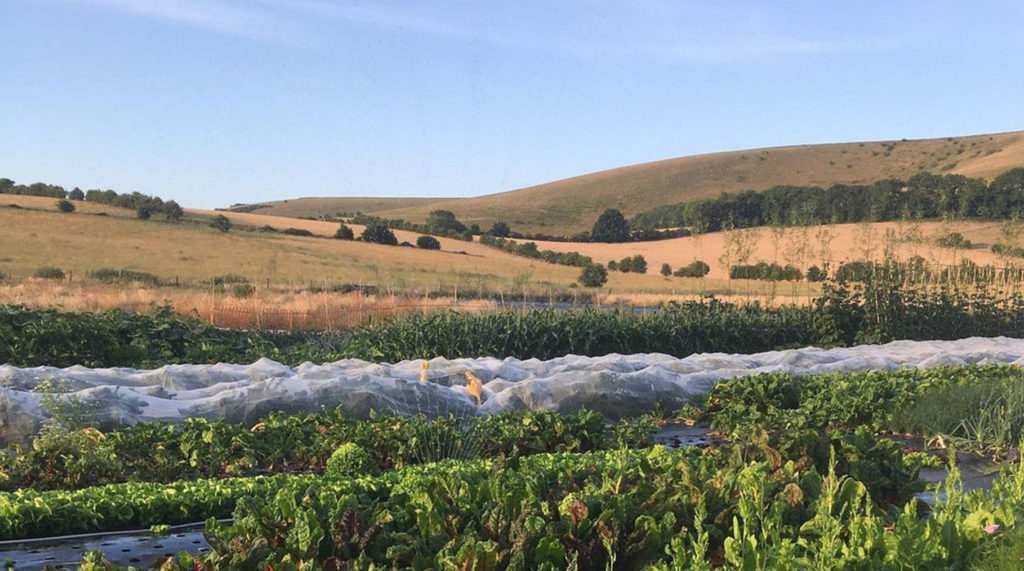Over the last few years or so there has been a noticeable focus on living more sustainably and working with our planet rather than it working for us.
One great way of having less of a negative impact on our planet is sourcing our food in more sustainable ways, and to gain a bit of advice on how to accomplish this we spoke to Kate who runs the Ditchling Edible Garden Instagram page that grows food sustainably in a local back garden and market garden.
Kate, who is a painter as well as a passionate gardener, has lived in Ditchling for 19 years and has recently helped set up a community market garden in Kingston, Lewes where she works two days a week. Kate uses the produce grown in the garden to feed her family, friends and neighbours as well as donating surplus to Real Junk Food Project Brighton where they intercept food that might otherwise go to landfill to serve their three pay as you feel cafes.
Speaking to us about what inspired her to create a sustainable garden, Kate told us: “Wherever I live I have always gardened, be it in student digs or a windowsill in a shared flat. And growing food has always been my focus.
“We made a vegetable garden here as soon as we moved in, and then added fruit trees, soft fruit and other perennials. During lockdown we decided to build more vegetable beds over the top of the lawn and have now doubled the growing space. We garden using no-dig principles which makes it very easy to make new beds, you simply lay cardboard straight on top of the lawn then cover with 6-8” compost.
“We grow every vegetable that we want to eat: fennel, broccoli, broadbeans, asparagus, and everything in between. We also have apple, pear, plum, damson and fig trees, and lots of soft fruit bushes. We collect rain water from the roof of our house into two 1000 litre tanks which provide all the water for the garden. We make all our compost, using a mixture of garden waste, horse manure from stables around the corner, and used coffee grounds from The Green Welly café in the village.
“We all know that the environment is an exhaustible resource, and we need to conserve and protect it for future generations and all living things. Consuming less, protecting wild spaces, growing food if you are able or supporting local growers – these are all things we can do to help protect our environment.
“Lovebrook CIC is a non-profit ecological project focusing on organic growing and community wellbeing. We run regular community volunteer days where you can help out in the market garden, learn new skills, enjoy a shared lunch, connect with others and with nature.”



